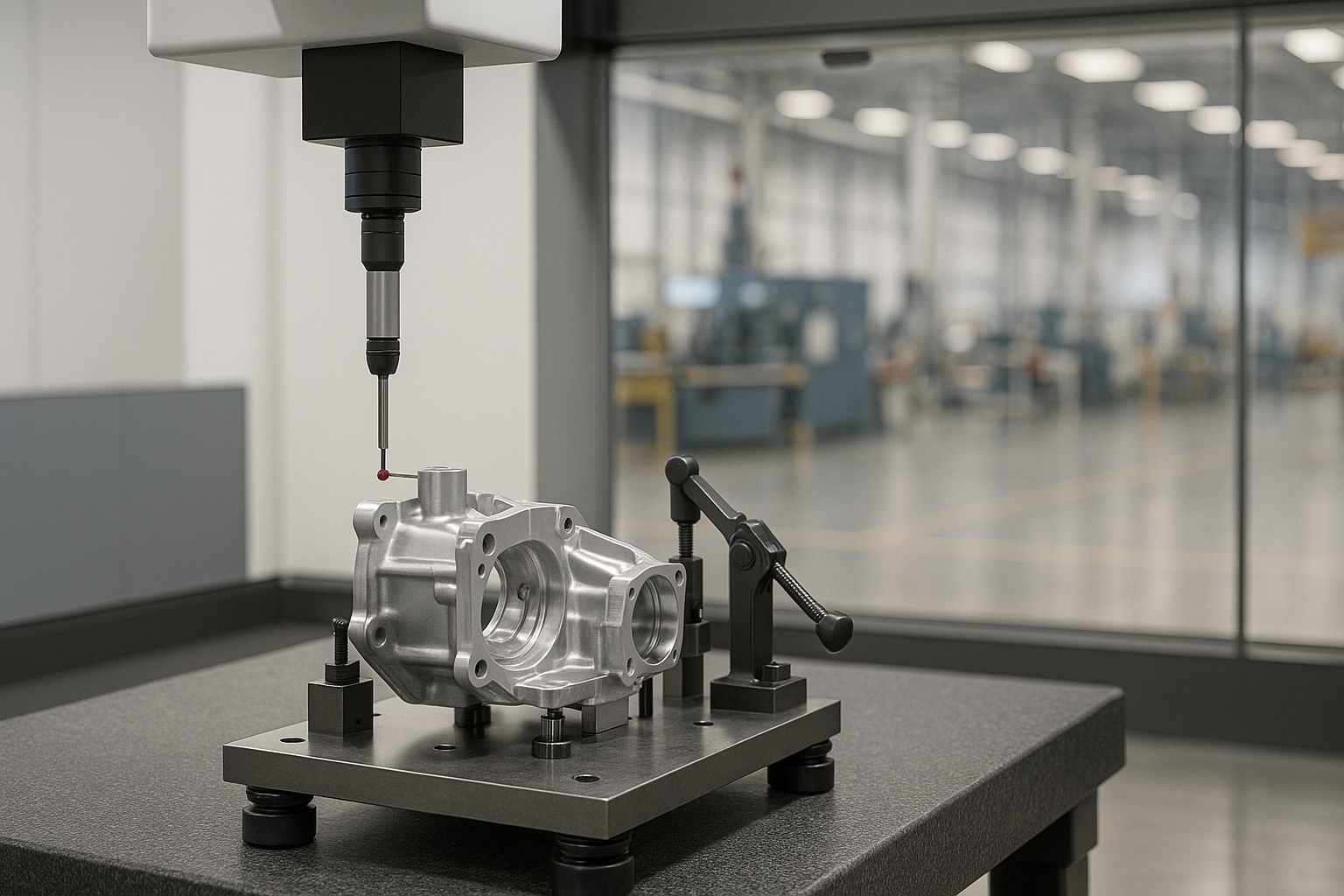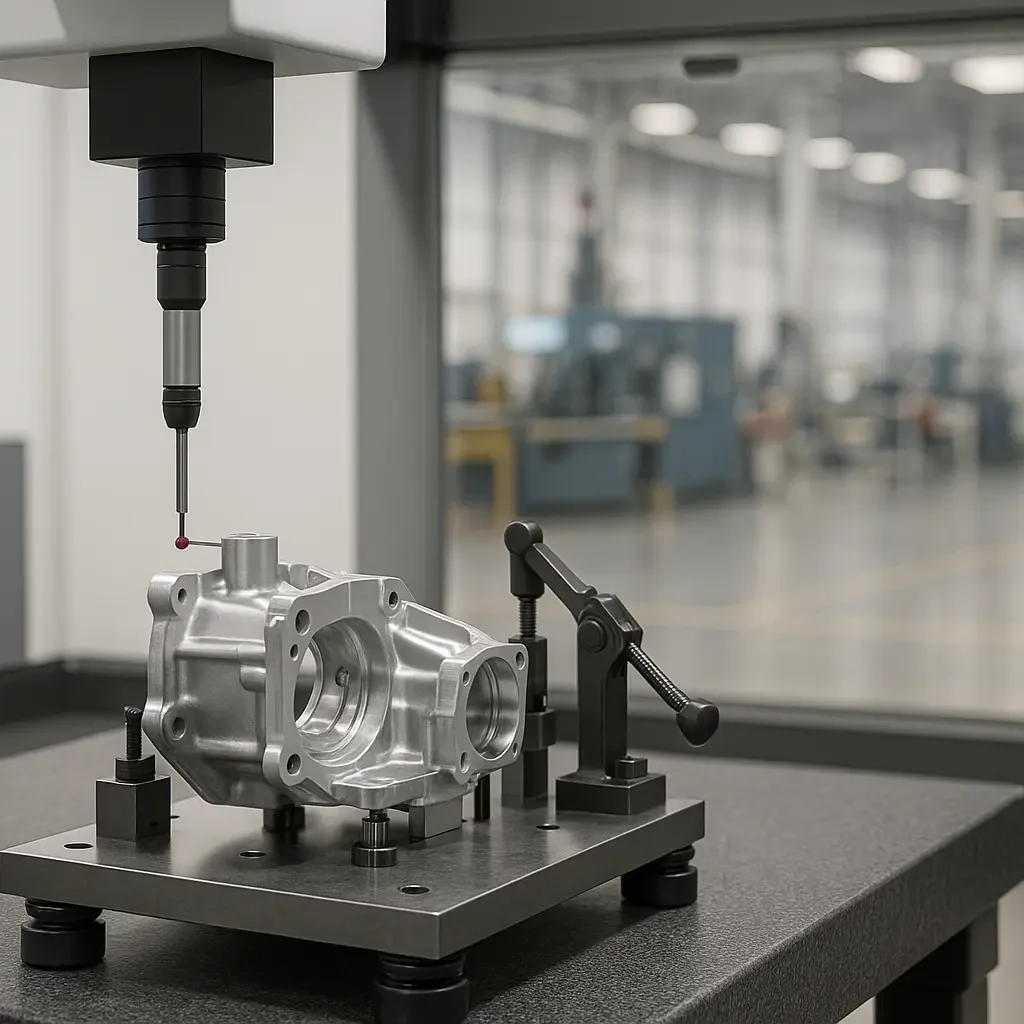

CMM Inspection
Nexams Leading the Way in Precision CMM Inspection and Dimensional Verification Across Industries
CMM inspection is a critical quality assurance method used to ensure that manufactured components meet precise specifications, and at NEXAMS we deliver this with an empathetic, ethical, and human-like approach that makes decision-making clear for engineering and procurement teams alike while coordinating transparently with trusted Vendors, capable Manufacturers, and a dependable Supplier network for grounded, on-time results and responsive Support through local and nearby service hubs.
We provide comprehensive CMM inspection services utilizing advanced coordinate measuring machines, combining fixed-bridge systems with portable CMM to offer accurate dimensional verification, contact probing, and GD&T validation across diverse programs; our collaboration with audited Suppliers and experienced Manufacturers keeps traceability tight and communication steady so teams can act confidently at every gate.
Our process integrates CMM inspection quality control methods with SPC data collection to guarantee consistency and compliance, and by employing portable CMM devices we enable on-site inspections for flexible production environments—all supported by calibration services, risk-based plans, and ethical documentation that make choices evidence-driven and stakeholder-friendly.
Through advanced CMM inspection production technology and real industrial application practices, we deliver reliable inspection reports that promote clear decision-making in manufacturing workflows; our quality assurance group focuses on robust contact probing strategies and GD&T validation so that even complex tolerances are verified with care, empathy, and practical clarity.
Benefits of Technology
High-precision dimensional verification for complex geometries that helps engineering and quality teams align decisions with measurable risk.
On-site inspections using portable CMM for flexible applications, coordinated with local technicians for faster response and dependable Support.
SPC data collection ensuring statistical process control and trend visibility for ethical, transparent reporting to Suppliers and customers.
GD&T validation for tolerance compliance that de-risks release decisions and protects downstream processes at Manufacturers.
Comprehensive calibration services for consistent accuracy, scheduled with nearby labs to minimize downtime.
Enhanced quality assurance processes that integrate seamlessly with MES/PLM for audit-ready histories.
Efficient workflow with CMM inspection automation solutions that reduce touch time while preserving rigor.
Reduced measurement uncertainties with advanced contact probing and verified fixtures from qualified Vendors.
Integration of CMM inspection with production technology for real-time feedback and faster corrective action loops.
Scalable inspection solutions suitable for diverse industries, supported by a reliable Supplier chain.
Industrial Application and Use Cases
Automotive: Coordinate measuring for engine parts and chassis components with responsive Support from local partners.
Aerospace: Dimensional verification of turbine blades and fuselage structures using calibrated tooling from trusted Vendors.
Heavy Engineering: Inspection of large assemblies via portable CMM at nearby facilities to cut logistics delays.
Medical Devices: Precision measurement of implants and surgical instruments aligned with ethical documentation for Manufacturers.
Electronics: Contact probing for micro-features with traceable programs shared with approved Suppliers.
Manufacturing: GD&T validation for machined parts tied to SPC, PPAP, and FAIR requirements.
Defense: Quality assurance of defense-grade equipment with controlled access and compliance trails.
Tool & Die: CMM inspection of molds and dies for dimensional accuracy before hardening.
Energy Sector: Inspection of turbine components and industrial valves with clear pass/fail criteria.
General Engineering: Calibration services for routine and critical measurements to sustain capability.
Material Used in Technology
Aluminum Components – Lightweight yet demanding precise dimensional verification with stable fixturing.
Steel Components – Common in automotive and aerospace assemblies where wear and thermal effects are considered.
Plastics & Composites – Require intricate probing and environmental control during inspection.
Titanium Parts – High-precision measurement for medical and aerospace applications with validated methods.
Ceramic Parts – Coordinate measuring for delicate, complex shapes with specialized styli and forces.
How Costing Works
CMM inspection costing is influenced by part complexity, number of inspection points, programming effort, and whether the service is conducted on-site via portable CMM or within our metrology labs; calibration services are bundled with volume orders, and for critical GD&T and SPC needs we schedule dedicated cycles so that decisions remain data-led, budget-aware, and aligned with timelines discussed openly with Vendors, Manufacturers, and the responsible Supplier contacts.
Our pricing structure offers scalable packages under measuring services and calibration services, and the CMM inspection production technology we deploy enables efficient throughput that reduces both inspection time and total cost of quality while ensuring steady Support from local and nearby teams when priorities shift.
Alternative Technical Suggestion
Laser Scanning — Non-contact measurement for intricate surfaces and fragile materials.
Optical CMM Systems — Visual inspection of micro components where tactile probing is risky.
White Light Scanning — High-speed surface data acquisition for rapid area coverage.
Portable Arm CMM — On-the-go dimensional verification at the machine or cell.
CMM Automation Solutions — Integrated robotic probing systems for mass inspections and repeatability.
FAQs
Q: What is CMM Inspection?
A: CMM Inspection uses a coordinate measuring machine to verify the dimensional accuracy of a component against design specifications, producing ethical, traceable evidence that helps Manufacturers and Suppliers make timely, confident decisions with full Support.
Q: How does portable CMM enhance inspection flexibility?
A: Portable CMM enables on-site measurements in production environments, reducing transit risk and lead time by leveraging local setups and nearby resources from qualified Vendors.
Q: What is SPC data collection in CMM inspection?
A: SPC (Statistical Process Control) gathers real-time measurement data to monitor and control processes, creating transparent dashboards that Manufacturers and a responsible Supplier chain can act on.
Q: Why are calibration services essential in CMM Inspection?
A: Calibration services maintain instrument accuracy and traceability to standards, ensuring ethical compliance and dependable results that instill confidence across Suppliers and customers.
Q: How does contact probing work in CMM Inspection?
A: The probe touches programmed points on a surface to capture precise dimensions; forces, styli, and strategies are selected carefully to protect parts and satisfy Vendors and QA reviewers.
Q: What industries benefit most from CMM Inspection?
A: Automotive, aerospace, defense, medical devices, electronics, and general manufacturing benefit when ethical documentation and responsive Support are required.
Q: What is GD&T validation in CMM Inspection?
A: GD&T validation confirms that complex geometric tolerances meet design intent, improving communication among design teams, Manufacturers, and Suppliers.
Q: How does CMM inspection support quality assurance?
A: It verifies dimensional accuracy and feeds SPC, enabling corrective actions and stable capability while keeping stakeholders—engineering, Vendors, and the Supplier network—aligned.
Q: What is CMM Inspection Production Technology?
A: It’s the integration of CMM with production so checks happen in or near the line, supported by local or nearby cells for rapid feedback and lower scrap.
Q: How does NEXAMS ensure precision in CMM Inspection services?
A: We follow a structured quality control method using advanced machines, calibrated probing, and SPC, with empathetic communication and dependable Support from qualified Manufacturers and Suppliers to keep outcomes reliable.
A: By Sea: Asia: 15–20 days, Europe: 25–35 days, North America: 30–40 days, South America: 35–45 days, Middle East: 14–18 days, Africa: 20–28 days, Oceania: 22–30 days
By Air: Asia: 1–3 days, Europe: 3–5 days, North America: 4–6 days, South America: 5–7 days, Middle East: 1–2 days, Africa: 3–5 days, Oceania: 4–6 days
